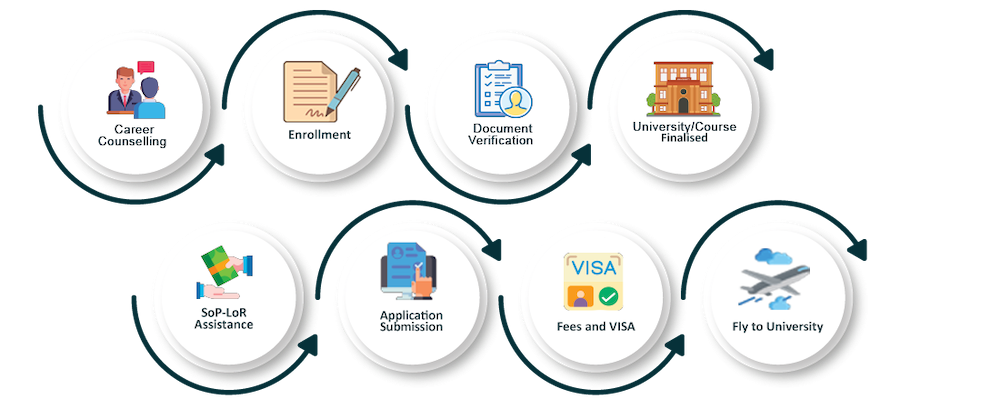Cambridge University's selection process is difficult to break, with 31 colleges operating their own internal systems, and only the brightest minds being invited. There are also six schools: Arts and Humanities, Biological Sciences, Clinical Medicine, Humanities and Social Sciences, Physical Sciences, and Technology.
Cambridge has around 18,000 students from various cultures and parts of the globe. Over 120 countries are represented among its nearly 5,000 international students. In addition, the university's International Summer Schools offer a total of 150 different classes to students from over 50 different countries.
The University of Cambridge is one of the best public institutions in Cambridge, England. The Times Higher Education World University Rankings and the Academic Ranking of World Universities both rank the University of Oxford as one of the best schools in the world.

QS
3

TIMES
5

US News
8
| Course | Duration | Fee/Year |
|---|---|---|
| Bachelor of Arts in Archaeology - Archaeological Science | 36 Months | GBP - 35,672 |
| Bachelor of Science in Mathematics - Pure Mathematics | 36 Months | GBP - 36,785 |
| Bachelor of Arts in Philosophy - Ethics | 36 Months | GBP - 35,672 |
| Bachelor of Computer Science - Artificial Intelligence | 36 Months | GBP - 32,675 |
| Bachelor of Arts in Modern and Medieval Languages - French | 36 Months | GBP - 35,672 |
| Bachelor of Arts in Human, Social, and Political Sciences - Sociology | 36 Months | GBP - 35,672 |
| Bachelor of Arts in Theology, Religion, and Philosophy of Religion - Biblical Studies | 36 Months | GBP - 35,672 |
| Bachelor of Chemical Engineering and Biotechnology - Process Engineering | 36 Months | GBP - 32,675 |
| Bachelor of Manufacturing Engineering (Part II course) - Mechanical Engineering | 36 Months | GBP - 32,675 |
| Bachelor of Science in Natural Sciences - Biology | 36 Months | GBP - 36,785 |
| Course | Duration | Fee/Year |
|---|---|---|
| Master of Arts in Archaeology - Archaeological theory | 12 Months | GBP - 31,860 |
| Master of Arts in Theology, Religion, and Philosophy of Religion - Christian theology | 12 Months | GBP - 31,860 |
| Master of Arts in Foundation Year in Arts, Humanities and Social Sciences - Research skills | 12 Months | GBP - 31,860 |
| Master of Arts in Asian and Middle Eastern Studies - Language and literature | 12 Months | GBP - 31,860 |
| Master of Arts in Modern and Medieval Languages - Language and literature | 12 Months | GBP - 31,860 |
| Master of Arts in Advanced Chemical Engineering - Chemical engineering | 12 Months | GBP - 34,560 |
| Master of Arts in Engineering for Sustainable Development - Sustainable development | 12 Months | GBP - 34,560 |
| Master of Arts in Connected Electronic and Photonic Systems - Electronic engineering | 12 Months | GBP - 34,560 |
| Master of Arts in Applied Mathematics - Mathematical modelling | 12 Months | GBP - 36,750 |
| Master of Arts in Mathematics and Stats - Pure mathematics | 12 Months | GBP - 36,750 |
Make sure you have or are likely to get the grades you need at the right level and in the right courses for the degree you want to get before you apply. To determine your eligibility, each college or school will have its own admission standards and score range. Please visit their separate websites to learn more about their specific needs.


The United Kingdom is another prominent higher education location for overseas students. With a working population of 32.4 million, it is the world's sixth-biggest economy. The UK has an employment rate higher than 75%.
It is estimated that around Rs 40 lakh is spent on education in the United Kingdom as a whole. However, the ROI in terms of pay is around £26,351–£41,454 (INR 25–45 lakhs) after course completion.
Some of the best recruiters at the University of Cambridge are Amazon, Deloitte, Boston Consulting Group, JP Morgan, McKinsey & Company, and Shoppe.
MBA is the best-paying subject at the University of Cambridge.
MBA graduates make an average of 95.44 lakhs per year after graduation.
University of Cambridge Placement By Subject
The following are some of the other top-paying disciplines, as well as the average incomes of University of Cambridge graduates:
| Course | Annual Package |
|---|---|
| MBA | 95.44 lakhs |
| Masters of Arts | 91.56 lakhs |
| Masters in Finance | 87.68 lakhs |
| LLM | 86.13 lakhs |
| Doctorate | 85.36 lakhs |
| Executive MBA | 79.92 lakhs |
The highest-paying degree is a Master of Business Administration, with an average salary of 95.4 lakh INR.
Amazon, Boston Consulting Group, Citigroup, Deloitte, Floww, EV-Parthenon, McKinsey & Company, and JP Morgan are some of the top companies that hire University of Cambridge graduates.
Applicants from the United States may submit SAT results if they have achieved the cut-off GPA at the high school level. Most science and economics classes require you to get at least a 750 on each part, for a total of 1500.
The average cost of living away from campus is $7.20 lakhs. Students may also discover more inexpensive housing based on their preferences. On-campus housing costs an average of Rs. 1.50 lakhs per year.
The cost of tuition at Cambridge might be covered by grants or loans, but the cost of living is pretty high.
Every application is evaluated holistically, with admissions tutors taking into account all relevant information before making any choices. No aspect of an application is evaluated in isolation; for example, a student's performance during an interview does not determine the result of their application.
No, study gaps are not tolerated by UK institutions. When applying for the master's programme, you may have a maximum of 10-12 years of work experience. Starting with the year you graduated, the total number of years of experience will be figured out. If you are applying for a bachelor's degree, you may have 2-3 years of experience. The gap is not permitted; nonetheless, institutions may need you to show your job work to compensate for the missed years.
However, there is a widespread belief that Cambridge is slightly superior in the sciences, while Oxford is slightly superior in the social sciences and humanities, despite both universities claiming no significant difference.